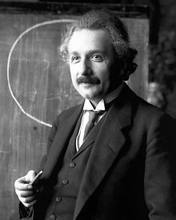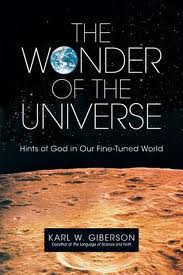 Today, Karl Giberson continues his six-part series of excerpts from his new book The Wonder of the Universe: Hints of God in a Fine-Tuned World . Karl Giberson, noted speaker and writer about the intersection of Christian faith and science. (See first post for intro; see his complete bio here.)
Today, Karl Giberson continues his six-part series of excerpts from his new book The Wonder of the Universe: Hints of God in a Fine-Tuned World . Karl Giberson, noted speaker and writer about the intersection of Christian faith and science. (See first post for intro; see his complete bio here.)
In this fourth excerpt, Giberson tells us that science is reliable. Yeah, no grand conspiracy. Just some discoveries about how the physical world operates.
Excerpt #4: The Reliability of Science
Science has discovered much about the universe. The scientific enterprise provides amazing insights into the natural world, and I believe that those insights are reliable, steadily improving and most likely true. Caution and humility are in order, nonetheless, because science is a finite human enterprise with all the limitations that entails.
Skeptics of various sorts, from young-earth creationists to agnostic postmodern literary critics, sometimes dispute the claims of science, pointing to past scientific ideas that have been overturned or areas of present controversy. The settled and secure science of today, suggest these critics, may pass into history, joining the settled and secure science of long ago in the graveyard of wrong ideas.
There is some truth to this caution, but it really should be nothing more than a caution, like a seatbelt put on with no expectation of needing it. During every major, and even minor, transition in science there are people who hold to traditional views; there are examples of tenacious and irrational loyalty to the status quo.
There are many examples of celebrity skeptics. Einstein wouldn’t accept quantum mechanics. Galileo wouldn’t
accept Kepler’s calculations that showed that the planetary orbits were elliptical rather than circular. Fred Hoyle wouldn’t accept the evidence for the big bang and developed a theory to oppose it.
Those eager to reject the claims of science invoke these anecdotes as if they are typical. If we don’t like the fact that science has determined the age of the earth to be billions of years old, we cling to the hope that this conclusion, like the once-secure claim that the earth is stationary, will soon give way to a new and more congenial understanding.
After all, for two thousand years educated leaders insisted that a mountain of evidence pointed to the earth being stationary and at the center of the universe. And now no scientist believes that. Similarly, Newton’s ideas were supplanted by those of Einstein. Quantum mechanics, black holes, multiple universes and string theory have blown everyone’s mind at some point over the past century.
Is there no good reason to believe that the new ideas of tomorrow will be different and perhaps more appealing than the ideas of today?
The answer, in a nutshell, is no.
The idea that science constantly changes is largely fiction, based on our lopsided familiarity with scientific revolutions and lack of awareness of ongoing ordinary science. The typical scientific advance—the sort that is presented in almost every one of the thousands of scientific papers published each year—is one that extends, encompasses and absorbs rather than refutes old understandings. Only rarely do new ideas require that old ideas be discarded.
Even truly revolutionary ideas are often compatible with many previous ideas. Consider Copernicus’s ideas—the gold standard for scientific revolutions. His new model for the solar system included the all-important but long-established ideas that the planets were different than the stars, that the planets all had their own orbits, that the stars maintained predictable patterns, and, of course, that the earth was round.
We overlook the significance of this because science often establishes its conclusions with such clarity that they seem trivial, and thus their enduring character seems inconsequential. But the discovery and measurement of the shape and size of the earth, for example, was an amazing achievement.
 Similarly, Newton’s ideas have not been discarded; they simply have been shown to have a restricted domain of application. When I teach mechanics to engineering students, I use a textbook based entirely on Newton’s laws of motion. If Newton’s own treatment wasn’t so opaque, we could still be using his book from the seventeenth century. The revolution that “toppled Newton” was the discovery of certain extreme situations where his theory did not work. It was not the discovery that his ideas were wrong in any simple sense. NASA still launches space shuttles and puts satellites into orbit using Newton’s laws, which work perfectly for those situations. The repeated discovery of new planets—as exciting as it was at the time—simply expanded the domain of application of Newton’s theory of gravity.
Similarly, Newton’s ideas have not been discarded; they simply have been shown to have a restricted domain of application. When I teach mechanics to engineering students, I use a textbook based entirely on Newton’s laws of motion. If Newton’s own treatment wasn’t so opaque, we could still be using his book from the seventeenth century. The revolution that “toppled Newton” was the discovery of certain extreme situations where his theory did not work. It was not the discovery that his ideas were wrong in any simple sense. NASA still launches space shuttles and puts satellites into orbit using Newton’s laws, which work perfectly for those situations. The repeated discovery of new planets—as exciting as it was at the time—simply expanded the domain of application of Newton’s theory of gravity.
The application of scientific ideas to technological devices provides another reason for being comfortable with science. Scientific insights that have given rise to technologies like computers, cell phones and lasers have a certain pragmatic credibility and are unlikely to be supplanted. If those ideas were not true, then building devices based on them would be impossible. Almost all the physics of the first half of the twentieth century is validated every time your computer powers up. No matter what you think about the strangeness of quantum mechanics, the devices based on it work.
The prudent approach to science is to accept its central ideas as good descriptions of reality, developed by scientists, working with integrity, who are motivated to find out how the created world functions. The central ideas in any scientific field—whether it be cosmology or medicine—have been hammered out by a community of well-informed and highly skeptical scientists. To achieve consensus with such a group is no simple task.
Appreciating the consensus character of science is crucial to navigating scientific controversies like those that swirl about global warming, the big bang or biological evolution. The central ideas of science are never based entirely on the work of a few scientists.
While certain great scientists like Darwin or Einstein may provide the initial flash of genius, the idea flows from the margins of science into a much larger world until thousands of skeptical specialists are thinking hard about it. Many of those specialists are looking for an ingenious flaw in the theory, just as Einstein tried heroically to come up with a good reason to reject quantum mechanics.
The simple fact that quantum mechanics survived a quarter century of assault by Einstein should convince us that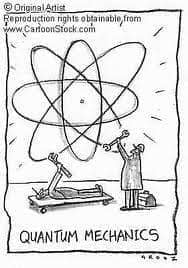 the theory must be reliable. But this same fire refines every idea in science. The moment a new idea appears in the scientific literature, critics spring into action, motivated by everything from self-defense to curiosity to an enthusiasm for knowledge to a desire to be famous.
the theory must be reliable. But this same fire refines every idea in science. The moment a new idea appears in the scientific literature, critics spring into action, motivated by everything from self-defense to curiosity to an enthusiasm for knowledge to a desire to be famous.
New ideas from the fringes lobbying to get into the scientific conversation can be taken seriously but not uncritically. They may be the explanations of tomorrow, or they may pass like the “cold fusion” claims from the 1980s, which I suspect you have never heard about, despite making a great stir at the time. There is presently a lot of excitement about multiple universes.
I am skeptical that these ideas will endure, but the right people are proposing them in the right way, so we have to take them seriously. We should not dig in our heels, as some did against the ideas of Galileo, and cut off discussion. These ideas may withstand the scrutiny they are receiving now. For truly controversial ideas, we should look closely at who is saying what, and why they are saying it. Great scientists, from Newton to Einstein to Dyson will often end their illustrious careers exploring oddball ideas that would sink the careers of lesser scientists.
And of course one should always be skeptical of the way that zealous scientific crusaders misuse science to make some larger point that has nothing to do with science. Atheists claiming that Darwin forces us to abandon belief in God are the best example of this.
The most difficult part of science for an outsider to navigate is scientific controversy.
Many ideas in science—and many other fields, for that matter—are opposed by dissenters. Often these dissenters have Ph.D.s and are well-credentialed. They may have written books and hold appointments at respected universities. How are we to know if the controversial idea held by the dissenter, and being opposed by people too invested in the status quo, is the new science of tomorrow? Is it possible that the status quo is on its way to becoming the science of yesterday, and its champions are just the faithful few who just can’t let go? If two scholars holding opposite ideas are pitted against each other and both have comparable credentials, what do you do?
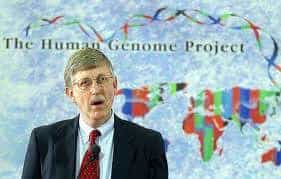 Consider the case of Francis Collins and Michael Behe, who are both Christians, although that is not technically important for the point I am making.
Consider the case of Francis Collins and Michael Behe, who are both Christians, although that is not technically important for the point I am making.
Collins is a well-respected geneticist who headed the Human Genome Project and, as of right now, directs the National Institutes of Health, overseeing the largest biomedical research budget in the world. He has written several books, including the bestseller The Language of God: A Scientist Presents Evidence for Belief. In 2011 he and I coauthored The Language of Faith and Science: Straight Answers to Genuine Questions. In both of these books, in his public presentations and in his many research papers he affirms the theory of evolution and the adequacy of that theory to explain the development of life on this planet.
Michael Behe is a fully credentialed biochemist tenured at Lehigh University, a respected research institution. He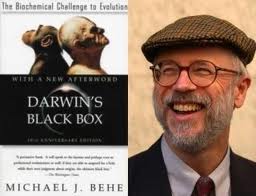 has published more than a hundred research papers and has written two bestselling books: Darwin’s Black Box: The Biochemical Challenge to Evolution and The Edge of Evolution: The Search for the Limits of Darwinism. In both of these books he denies the theory of evolution by natural selection, claiming it cannot account for the development of life on this planet. He promotes intelligent design as a superior explanation.
has published more than a hundred research papers and has written two bestselling books: Darwin’s Black Box: The Biochemical Challenge to Evolution and The Edge of Evolution: The Search for the Limits of Darwinism. In both of these books he denies the theory of evolution by natural selection, claiming it cannot account for the development of life on this planet. He promotes intelligent design as a superior explanation.
Who is right—Collins or Behe? And how do we decide? Almost all the controversies about science within the evangelical world—and elsewhere—come down to this sort of situation— multiple experts, often impressively credentialed, but with opposing views. Behe and Collins both claim to speak for science.
I want to suggest that, despite the apparent symmetry of the two sides in this case, that Collins should clearly be preferred over Behe. Collins promotes scientific ideas that are shared by tens of thousands of other credentialed scientists.
The pages of leading science magazines discuss those ideas. Scientific meetings put those ideas on their programs. Grants are awarded to study those ideas. Biotechnology companies research new products based on those ideas. Some pharmaceutical companies even have products for sale based on those ideas. In contrast, Behe’s ideas are shared by a tiny number of scientists, and most of them are less credentialed than he is. Collins’s group of colleagues is hundreds, perhaps thousands of times larger than Behe’s.
The ideas about intelligent design promoted by Behe are almost nonexistent in scientific magazines. Some of the ideas, in fact, have never been written up and submitted to a science journal. They appear only in his popular books. Behe’s ideas are not discussed at scientific meetings but only at gatherings of like-minded Christians who are often suspicious of science. They are published primarily in books that are not peer reviewed in the way that scientific research is peer reviewed before it is published. No grants are being awarded to study these ideas and no companies are interested in creating products based on them.
Behe represents a common phenomenon in American culture—the heroic but lonely outsider defending a view rejected by the majority. He is like the handful of historians who say the holocaust never happened or, if it did, that Darwin caused it. Or the handful of climate scientists who deny global warming. Or the champions of the existence of actual cases of alien abduction, some of whom are credible scholars.
This is not to say, of course, that Behe is wrong. Holding a minority view is not the same as being wrong. Most of the major ideas in science were once minority viewpoints embraced by a few renegade thinkers marching to their own drummer. But it does mean that Behe’s views cannot properly be called scientific, in the normal definition of that term.
Science works by achieving consensus, and only those ideas that have secured the allegiance of the scientific community can legitimately be called scientific. Other ideas might be up-and-coming; they might even be true. But they cannot be considered genuinely scientific ideas until they have persuaded the majority of scientists. And scientists, by temperament, are hard to persuade.
Next post: “Excerpt #5: Be Cautious with Design Arguments”

